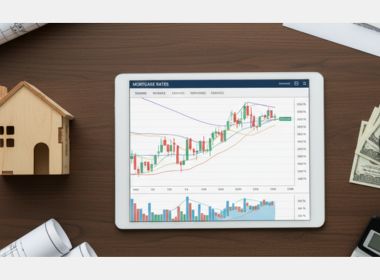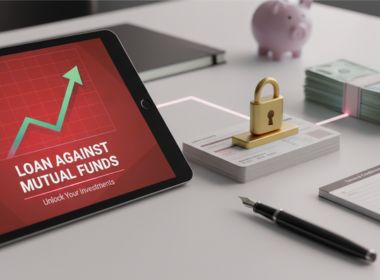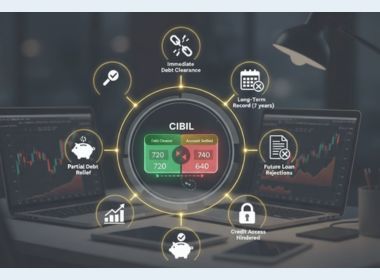Search Suggestions
- Gold Loan
- Money Transfer
- Mutual Funds

How to Buy NCD? Non-Convertible Debentures
Organizations adopt various routes to raise funds for long-term capital requirements. Bonds and debentures are two such routes. Bonds are generally issued by large corporations, financial institutions, and government agencies for their long-term capital requirements. Both public and private sector companies issue bonds to raise funds. Debentures are generally issued by private companies for the short-term capital requirement. Debentures are also a kind of bond that is not attached to collateral. Put simply, debentures are unsecured bonds. Since debentures are riskier than bonds, the interest rate on debentures is generally higher than bonds. Treasury Bills, Treasury Bonds, and low-rated (less than AA+) Corporate Bonds are examples of debentures. Some debentures can be converted into equity shares and some cannot. Debentures that cannot be converted into shares are called NCDs. The full form of NCD is Non-Convertible Debentures.
What is a Non-Convertible Debenture?
Some debentures can be converted into equity shares at the discretion of the owner. Debentures that can be converted into shares are called Convertible Debentures (CDs) and those that cannot be converted into shares are called Non-Convertible Debentures (NCDs). NCDs have a higher interest rate than CDs as they are comparatively riskier than CDs.
Types of Non-Convertible Debentures
There are two types of NCDs:
-
Secured NCDs: Secured NCDs are those NCDs that are backed by the issuer/borrower company's assets. If the borrower defaults on investor payments, the investors can claim payment through the borrower’s assets.
-
Unsecured NCDs: NCDs that are not backed by the issuer company's assets are called unsecured NCDs. The investors cannot claim payment as the NCDs are not secured by collateral and hence are riskier than CDs.
How to Buy an NCD?
Upcoming non-convertible debentures are initially issued by the company in the exchange and later traded in the secondary market. So, you can either choose to subscribe when a company announces an upcoming non-convertible debentures or buy later in the secondary market when it is trading. You can buy NCDs both online and offline.
How to Buy an NCD Online?
-
Buying an NCD Directly from the Issuer: You may directly visit the issuer’s website and can apply from there by making an online payment.
-
Buying NCD through a Broker: If you already have a Demat account with any brokerage firm, you can buy the NCD when it starts trading in the secondary market.
How to Buy an NCD Offline?
-
Via Designated NCD Centers: Some of the best NCD issuers have designated centers where intermediaries such as brokers, and registrar agents are allowed to accept the Application Forms in physical form. For the offline mode, you need to submit an ASBA Form. ASBA is "Application Supported by Blocked Amount". It is an application that can be used by an investor subscribing to IPO/FPO/Rights shares and acts as an authorization to block the application money in the bank account.
Tax Implications of NCD Investments
It is important you understand the tax calculation on NCDs. Interest earned through NCDs, if held until maturity, is clubbed with your income and taxed at your marginal income tax rate. You can easily calculate the interest via an NCD Interest Calculator. If you sell your NCD scheme on the stock exchange before a year then you will have to pay short-term capital gains at income-tax rates applicable to you. If the debenture is encashed after one year but before its maturity, you will have to pay long-term capital gains tax on the effective return at applicable rates.
Conclusion
Both bonds and debentures are routes to raise capital funding from the market by government, and public and private organizations, albeit differently. An investment in NCDs should depend on your risk profile, risk appetite, and financial goals. Both of these instruments are great ways to diversify your portfolio.
CATEGORIES
OUR SERVICES
-

Credit Score
-

Gold Loan
-

Personal Loan
-

Cibil Score
-

Vehicle Loan
-

Small Business Loan
-

Money Transfer
-

Insurance
-

Mutual Funds
-

SME Loan
-

Corporate Loan
-

NCD
-

PAN Card
-

NPS
-

Custom Offers
-

Digital & Cashless
-

Milligram Rewards
-

Bank Mapping
-

Housing Finance
-

#Big Business Loan
-

#Gold Loan Mela
-

#Kholiye Khushiyon Ki Tijori
-

#Gold Loan At Home
-

#Sunherisoch
RECENT POSTS

Why Are Gold Loans the Best Option When Banks Reject Your Personal Loan?
Know More
Struggling with low CIBIL? Here’s How a Gold Loan Can Still Get You Funded
Know More
What is a Top-Up Loan? Eligibility Criteria Explained
Know More
Top Factors That Influence Mortgage Loan Interest Rates
Know More
What is a Loan Against Mutual Funds and How Does it Work?
Know More
What is Working Capital? Meaning, Formula & Importance
Know More
Understanding KDM Gold and Why it’s Banned
Know More
Gold loan boom: 3,000 new branches to open in India in 12 months
Know More
Gold Loan Boom: Rs 14.5 lakh crore market spurs NBFCs to add 3,000 branches
Know More
How BNPL Affects Your Credit Score
Know MoreFIN SHORTS

What Are Co-Pay and Deductibles in Insurance Policies?
Know More
Should You Take a Loan Against Your Mutual Fund or SIP?
Know More
Top 5 Best Mid-Cap Mutual Funds to Watch in 2026
Know More
Are Personal Loans Right for Retirees? Key Points to Consider
Know More
What Happens to a Personal Loan After the Borrower Dies?
Know More
Best Loan Choices for Credit Scores of 580 and Below
Know More
7 Reasons Why a Gold Loan Is the Best Option for Small Businesses
Know More
10 Reasons Why People in India Prefer Physical Gold
Know More
Real Estate vs Gold: Which Is a Better Investment in India?
Know More
10 Common Mistakes That Make Investors Lose Money in Mutual Funds
Know More
10 Reasons Why Gold Has So Much Appeal in Uncertain Times
Know More
7 Ways Settling Debt Can Impact Your CIBIL Score
Know More- South +91 99469 01212
- North 1800 313 1212





